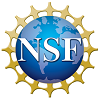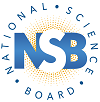Executive Summary
Key takeaways:
- Public confidence in science and scientists remains high, with the majority of American adults reporting positive assessments of science and scientists.
- A higher percentage of American adults had great confidence in both medical scientists (e.g., science practitioners such as physicians) and scientists generally in 2020 than they did in 2016; 24% reported a “great deal” of confidence in medical scientists in 2016, and 43% of respondents reported such confidence in 2020, with an increase from 21% to 39% for scientists generally.
- The majority of American adults report a basic understanding of scientific research principles such as the usefulness of a study control group for comparison with a treatment group. At the same time, those who demonstrate greater understanding of scientific logic tend to express more trust in scientists to act in the best interest of society than those who express less understanding.
- American adults report seeking information on science more than their counterparts in most other countries with similarly high levels of research and development spending. In 2018, the majority of American adults had recently sought information about medicine or disease.
- Only a minority of American adults report any recent experience with various science activities, such as making observations for a research project (7%) or participating in an online crowdsourcing activity related to data collection for science (3%).
- Households with greater parent educational attainment or income report more exposure to science through children’s activities, such as school projects, than do households with lower educational attainment or income.
This thematic report presents indicators of public perceptions of science and technology (S&T), public familiarity with science research processes, and American adults’ exposure to sources of science information as well as their involvement in scientific activities. American adults include people at least 18 years old who live in a U.S. household. Many of the data presented in this report were collected prior to the COVID-19 pandemic, although some data reflect perceptions measured during the pandemic.
Researchers have measured Americans’ understanding of S&T for decades and have noted a pattern of positive perceptions about science and scientists over time. This report describes that pattern and considers how those perceptions vary between people with different characteristics. The report also describes the state of research on public understanding of specific science and engineering topics (such as climate change science) and perceptions of certain types of S&T professionals (such as engineers).
How communication professionals present scientific developments can shape public reactions; descriptions of how scientists conduct research can improve or discourage public acceptance of information resulting from that research. This report describes evidence on public reaction to clinical trials, for example, which suggests that announcing in advance that an evidence base will develop over time and that conclusions about outcomes might change over time can lessen negative public reaction to later news about changes in scientific conclusions.
The report also describes ways in which public perceptions of S&T may have shifted with recent developments such as the COVID-19 pandemic, the advent of new technologies, and media coverage of environmental news. For example, a higher percentage of American adults expressed confidence in scientists in November 2020, following the onset of the COVID-19 pandemic, than in 2016. Recent literature also describes how changes in public perceptions of S&T can occur as people’s experience with S&T changes; for example, personal experience with automated technology and artificial intelligence can positively affect trust perceptions over time.
This thematic report concludes with a description of Americans’ exposure to science information as well as their participation in science activities. Most American adults report not recently participating in a science activity, such as making observations for a science research project or participating in an online crowdsourcing activity to identify animals. Moreover, participation in science activities varies by demographics, with those households with greater parent educational attainment or income reporting more science activity exposure. American adults largely have not been participating in scientific research activities, and those with less income or educational attainment report relatively less participation.
 An official website of the United States government
An official website of the United States government
